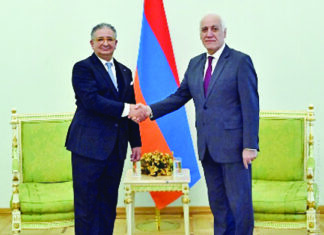By Jirair Libaridian
[A shortened version of this talk was presented on October 31, 2020 during the one-day international conference/webinar titled “Nagorno-Karabakh/Artsakh and the Palimpsests of Conflict, Violence, and Memory,” organized by the Armenian Studies Center of the Promise Armenian Institute at the University of California, Los Angeles.]
The issue I have been asked to address, “Why Negotiations Failed,” is one of the easiest and, at the same time, one of the most difficult to discuss. Easy because there are so many reasons for the failure of negotiations to choose from. Difficult, because the choices bring with it a measure of responsibility for the actors in question, a responsibility all the more difficult to accept considering where that failure has led us, the disastrous historical events we are witnessing.
Therefore, in addition to the limitation of the time available, my presentation will be constrained by two factors: (1) the restraint appropriate for a time of war, and (2) my strong sense that the parties to the conflict, that includes the Armenian side, are not yet ready, if they will ever be, to accept their share of responsibility in this failure.
First, who are the parties to the conflict: Azerbaijan, Nagorno Karabakh, and Armenia. And now Turkey.
What other actors have a direct interest in the outcome,? Russia, Turkey, Iran, the US, China, Georgia and other countries with secessionist movements; the OSCE and EU, the UN, NATO, the Organization of Islamic States; British Petroleum and other major oil and gas companies that have invested in the exploration, exportation, transportation, and use of Azerbaijan’s hydrocarbon resources. And the diaspora.








